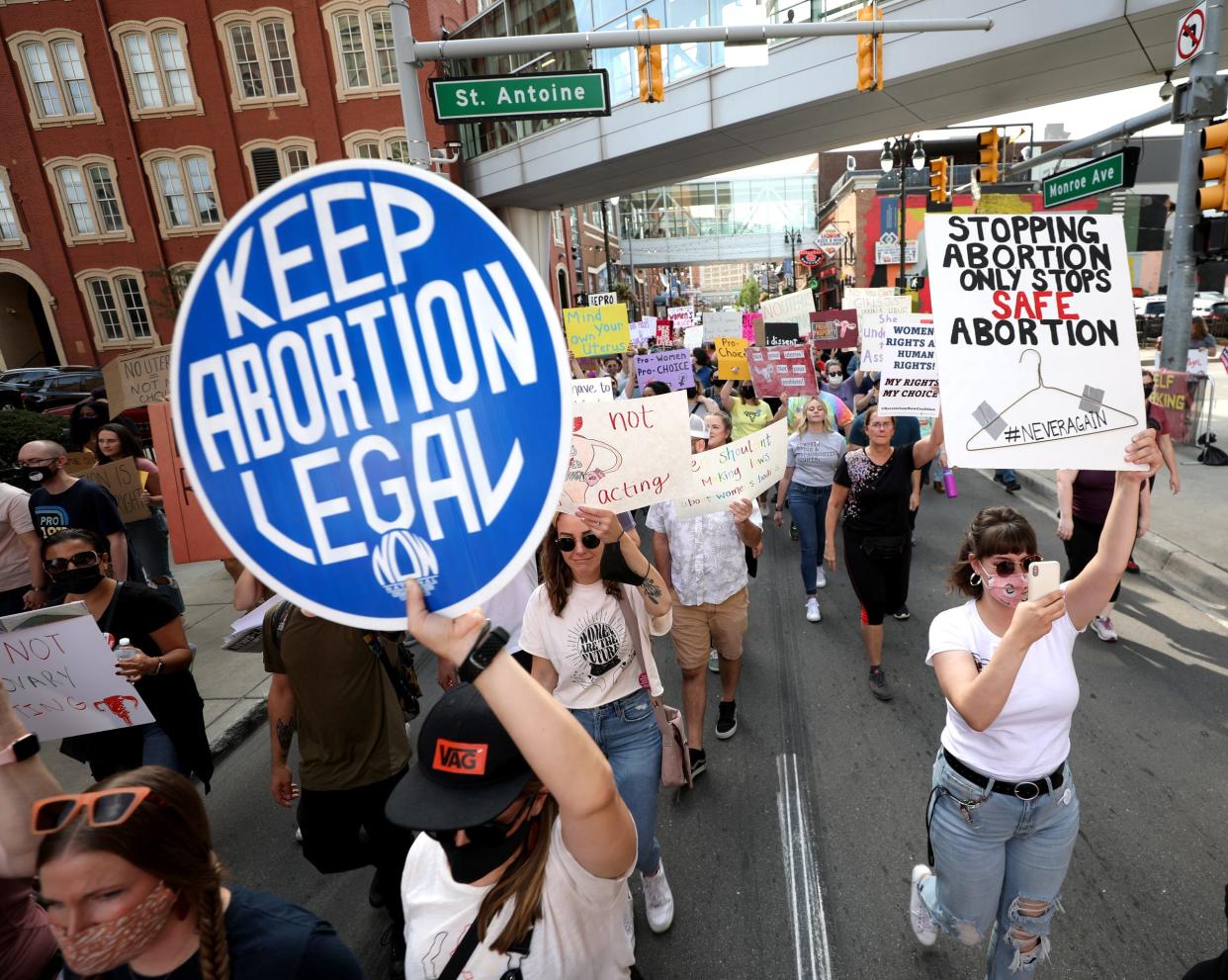Roe v. Wade overturning should concern faith leaders about reproductive rights | Opinion

In the historic ruling of Dobbs v. Jackson Women’s Health Organization on June 24, the Supreme Court of the United States overturned landmark decision Roe v. Wade, which guaranteed the fundamental right to have an abortion. Having been precedent for nearly half a century, Roe v. Wade was a pillar of healthcare rights in the United States for women, and having now been overturned, its protections are no longer guaranteed.
These fears are predominantly present in those states that had previously enforced abortion limitations, including Tennessee. Just days after the reversal of Roe, a 6-week ban on abortion was approved by a federal court –– in the state of Tennessee, abortion is virtually banned.
The subject of abortion is a delicate topic in terms of political, moral and social divisions. Although this issue is debatable, the whole of women’s reproductive rights and maternal healthcare should be hugely important to each of us.
Reproductive healthcare is not limited to just abortion –– the reversal of Roe poses a threat to a significant number of guarantees for those who give birth. Access to birth control and the ability to have quality and affordable reproductive healthcare are on the line with its reversal. With future court decisions to come that will likely endanger these rights as well, it is in our best interest to reevaluate our positions and discuss a plan for renewed state and federal action.
Tennessee is one of just 12 states that has not yet expanded Medicaid to its residents in the coverage gap. Poor Tennesseans and people of color are most harmed by this refusal to expand Medicaid, and access to quality maternal healthcare is at risk as well, especially for poor and Black Tennesseans. In states where abortion is banned, there are higher fatality rates for both mother and child. Everyone who values life and cares about children must come together to demand that Tennessee state representatives finally expand Medicaid to close the coverage gap and guarantee all Tennesseans have access to the healthcare they deserve, especially in terms of reproductive wellness.
Hear from Tennessee's Black voices: Get the weekly newsletter for powerful and critical thinking columns.
Hear more Tennessee Voices: Get the weekly opinion newsletter for insightful and thought provoking columns.
The most impactful way in which we can make a difference in Tennessee politics and healthcare equity is through the various faith groups and institutions throughout the state. As pillars of the community, religious leaders have the capability to influence their constituents in ways that politicians oftentimes can’t –– from a moral and faith-based background. When love is not the law, power and authority become necessary for social order which further demonstrates the guarantee of healthcare is inherently a matter of faith.
Each one of us deserves to be cared for in a respectable and accessible manner, no matter our race, age, socioeconomic status, sexual orientation, location or gender.
Although often complicated by matters of religion, the subject of maternal healthcare concerns our faith as well. Institutions of faith should not only be involved in the demands to expand Medicaid in the state of Tennessee, which has become more urgent now that the right to abortion has been taken away.
We must expand healthcare access to our most vulnerable Tennesseans in order to protect children and birthing people so they have access to family planning services to prevent unplanned pregnancies and so they are healthy if they choose to become pregnant. The matter of healthcare and maternal care is one of faith and morality –– caring about other individuals and their personal welfare is inherently a discussion about personal religious beliefs. Reproductive justice is health justice, and informing the fight for justice with morality is essential.
The Tennessee Justice Center (TJC) is a non-profit public interest law and advocacy firm serving Tennessee’s families. It gives priority to policy issues and civil cases in which the most basic necessities of life are at stake and where advocacy can benefit needy families statewide. TJC works to empower its clients by holding government accountable for its policies and actions. TJC was established in 1996 and is located at 211 7th Ave N, Nashville, TN.
Pastor Davie Tucker is executive director of the Metro Human Relations Commissions.
This article originally appeared on Nashville Tennessean: Opinion: why faith leaders must champion reproductive rights

